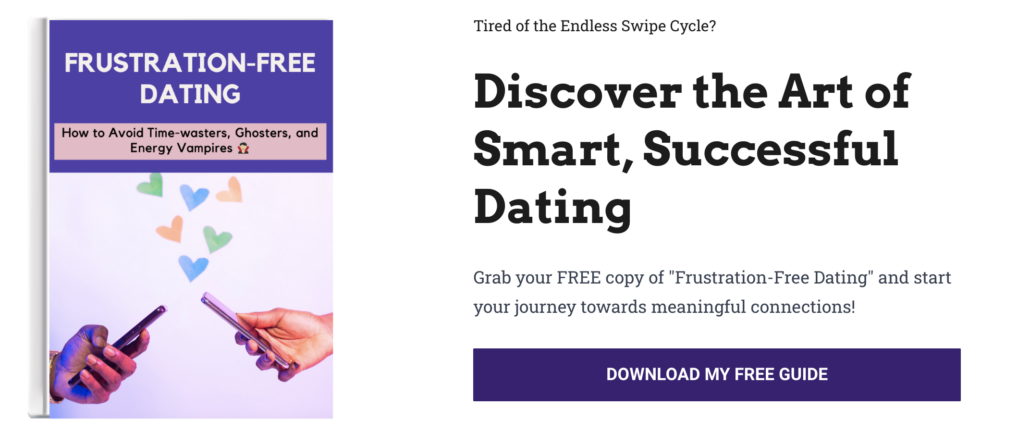Breadcrumbing Is the New Ghosting, and It Hurts More
 The way we connect with others can be both beautiful and complicated. But not every connection is as genuine as it seems.
The way we connect with others can be both beautiful and complicated. But not every connection is as genuine as it seems.
Emotional breadcrumbing is a subtle but toxic behavior that can leave you confused, drained, and questioning your worth.
Recognizing it early can save you from unnecessary heartbreak and guide you toward healthier relationships. Let’s explore what emotional breadcrumbing is, how to spot it, and what you can do to protect yourself.
What is Emotional Breadcrumbing?
Emotional breadcrumbing happens when someone gives you just enough attention to keep you interested but never commits to a deeper connection.
It’s like giving you crumbs of affection without ever offering the whole loaf. While it can occur in romantic relationships, it’s also common in friendships or even family dynamics.
Picture this: They send sporadic texts saying, “I miss you” or “We should catch up soon,” but they never make concrete plans. Or, they compliment you just enough to keep you hopeful but always seem busy when you want to spend quality time.
Unlike healthy relationships, where intentions are clear and consistent, breadcrumbing thrives on vagueness and mixed signals. True connections involve effort, mutual respect, and emotional reciprocity. Breadcrumbing, on the other hand, is based on control and selfishness.
Recognizing the Breadcrumbs
How do you know if someone’s breadcrumbing you? Here are some telltale signs:
- Inconsistent communication: They might reach out frequently for a week but then vanish for days or weeks without explanation.
- Vague promises: Phrases like “Let’s hang out soon” or “I’d love to see you one day” rarely lead to actual meetups.
- Minimal effort: They may “like” your social media posts or send you short replies but never engage in meaningful conversations.
- Hot and cold behavior: One moment, they seem deeply interested; the next, they’re distant and unavailable.
- Empty flattery: They shower you with compliments but fail to follow through with actions that match their words.
Pay attention to these patterns. Breadcrumbing doesn’t show up as one big red flag—it’s a trail of little clues that leave you frustrated and unfulfilled.
The Psychology Behind It
Why would someone breadcrumb you? The reasons often have more to do with them than with you.
- Insecurity: Some people crave attention to feel validated but lack the confidence or emotional maturity to commit.
- Fear of commitment: They want to keep you around as an option without fully investing in the relationship.
- Control and convenience: Breadcrumbing gives them power: they decide when and how much attention to give while keeping their emotional barriers intact.
Understanding the motivations behind breadcrumbing doesn’t excuse the behavior, but it can help you see it for what it is: a reflection of their issues, not your worth.
Why Emotional Breadcrumbing Hurts
Breadcrumbing might seem harmless at first, but its long-term effects can take a serious toll on your mental and emotional well-being.
The Emotional Rollercoaster
 When someone breadcrumbs you, they create an illusion of possibility. You might feel excited or hopeful when they give you attention, only to be crushed when they inevitably pull away.
When someone breadcrumbs you, they create an illusion of possibility. You might feel excited or hopeful when they give you attention, only to be crushed when they inevitably pull away.
This cycle of highs and lows can drain you emotionally, leaving you confused and questioning what you did wrong. It’s exhausting to invest energy into a connection that never fully materializes, and over time, it can feel like a never-ending ride you can’t escape.
Impact on Self-Worth and Relationships
One of the most damaging effects of breadcrumbing is how it chips away at your self-esteem. Being fed crumbs of attention can make you feel like you’re not deserving of more, but that’s far from the truth.
Breadcrumbing can also impact future relationships. The lingering trust issues, fear of being let down again, and emotional scars can make it harder to open up to someone new. That’s why recognizing it early is so critical.
How to Spot Emotional Breadcrumbing Early
The earlier you identify breadcrumbing, the sooner you can protect yourself. Knowing the signs and trusting your gut are key.
Red Flags to Watch For
- Inconsistent effort: They don’t show up for you in meaningful ways or prioritize you in their life.
- Avoidance of deep topics: Conversations stay surface-level, avoiding vulnerability or meaningful discussions.
- Superficial flattery: Compliments without genuine connection or action, such as saying “You’re amazing” but never asking meaningful questions about your life.
These red flags often appear gradually, so it’s important to reflect on the dynamics of the relationship and be honest with yourself.
Questions to Ask Yourself
If you’re unsure whether someone is breadcrumbing you, ask yourself these questions:
- Do their actions consistently match their words?
- Do I feel valued and heard, or do I feel like an option?
- Am I the one always making an effort to keep the relationship going?
- Do I feel uplifted and fulfilled by this connection, or do I feel drained and second-guessed?
Your answers can reveal whether it’s time to set boundaries or walk away altogether.
The Role of Boundaries
Setting boundaries isn’t selfish, it’s essential. Let the other person know what you need from the relationship and what you won’t tolerate. For example, you might say, “I value consistent communication, and if that’s not possible for you, this won’t work for me.”
Boundaries not only protect your emotional health but also make it clear that you won’t settle for less than you deserve.
Breaking Free from Breadcrumbing
If you’ve discovered you’re in a breadcrumbing situation, it’s time to take back control of your emotional well-being.
Acknowledging the Problem
The first step is recognizing and accepting what’s happening. Don’t make excuses for the other person’s behavior. They’ve shown you who they are through their actions. Be honest with yourself, no matter how hard it feels.
Prioritizing Self-Care and Healing
Healing from breadcrumbing requires focusing on yourself. Spend time with supportive friends, journal your feelings, or consider talking to a therapist. Engage in hobbies or activities that bring you joy and self-fulfillment. The goal is to rebuild your sense of self-worth and remind yourself that you deserve meaningful, respectful connections.
Building Future Relationship Resilience
Use the experience as a lesson for the future. Learn to trust your intuition, recognize red flags, and establish boundaries early in relationships. The stronger your sense of self-worth, the harder it’ll be for anyone to breadcrumb you again.
Time to Reclaim Your Energy
Emotional breadcrumbing can feel like emotional quicksand, keeping you stuck in a cycle of hope and disappointment. But you don’t have to stay trapped. By recognizing the signs early, setting boundaries, and prioritizing your emotional health, you can protect yourself and move toward authentic, fulfilling connections.
You deserve more than crumbs. You deserve the whole loaf: someone who values, respects, and shows up for you. Trust yourself to walk away from anything less.









